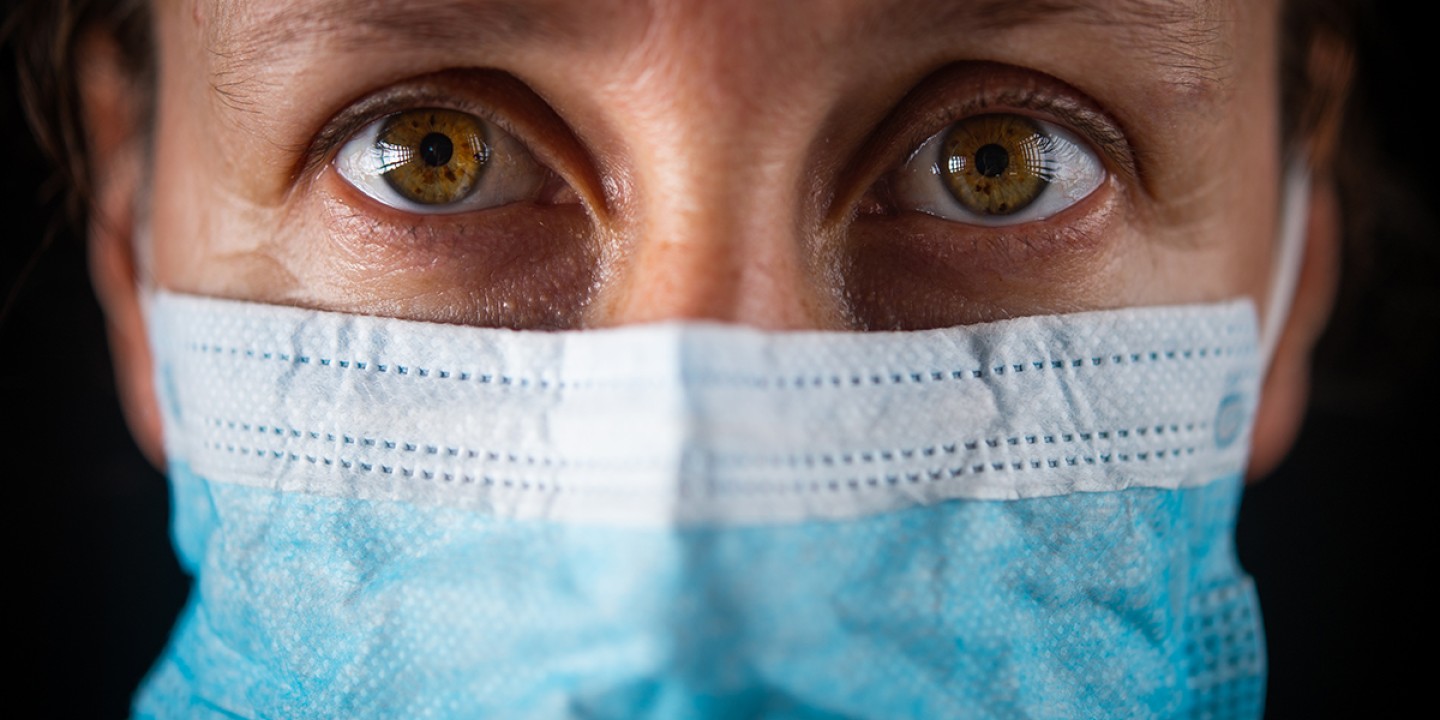Compassion begins in the eyes
The pandemic hasn’t taken away our ability to look our neighbor in the eye.

Our eyes serve as windows into the world. They’re what allow us to take in and interpret sights. But eyes serve as more than receptors to help us see and make sense of the world. They’re also meant to be seen. They communicate something of who we are and what we’re feeling. There’s a reason we tend to look first at a person’s eyes before their other facial features. The whites of eyes provide valuable information for what someone is thinking or might do next. If you doubt this feature, take note of what your own eyes look for the next time you pull up to a stop sign at a busy four-way-stop intersection.
Jesus said to a crowd one day that “your eye is the lamp of your body,” and the healthier that eye is the more light there is within you. Lamps don’t receive or interpret anything from people sitting nearby. They illuminate surroundings. They give off light. When German theologian Helmut Thielicke spoke of all compassion as beginning in the eyes, he was talking about what eyes project and give off, not what they absorb or receive. Let’s think about this function of eyes.
Take the example of Judge Craig Hannah, who presides over a model opioid crisis intervention court in Buffalo, New York. Hannah’s commitment to helping channel nonviolent opioid offenders away from jail and into successful recovery involves one simple strategy. Following a 30-day inpatient detox, participants enter 30 days of outpatient treatment—during which each recovering addict must meet with Judge Hannah every weekday. Once their name is called, defendants must walk up close to his bench for a one-on-one talk. Narrowing the gap between the podium and the bench is hardly for show. Even the court reporter will not hear what happens next. Hannah wants to look each addict in the eye, talk personally with them, and keep them from falling off in their recovery by assuring them with his own eyes that, in his words, he’s “working and caring for them.”
Or, take the example of St. Louis, Missouri, county prosecutor Wesley Bell, who was recently assigned to investigate whether or not criminal charges should be brought against former Ferguson police officer Darren Wilson, who shot and killed Michael Brown in 2014. As it turns out, and as Bell informed the Brown family, there wasn’t enough evidence to prove beyond a reasonable doubt that a crime was committed or that a self-defense claim could be disproved. Recognizing that the family hadn’t received the victim services and the “dignity and respect they deserved” from the prosecutor’s office, Bell met with them personally. “As unfortunate and tragic as it is that we can’t bring them the justice that they want, I hope that they can . . . at least appreciate that we tried,” he told an interviewer. “I’ve looked them in the eye and let them see what we did.” Bell’s behavior with the family that day signaled compassion, which, let’s remember, always begins in the eyes.
It’s tough during the current pandemic to enjoy deep and extended conversation with other people, given all the social restrictions. But even with masks on, we still get to see each other’s eyes. And those eyes send out valuable cues about life—everything from corner wrinkles indicating a smile to tears of sadness to expressions of true compassion.
A version of this article appears in the print edition under the title “What our eyes say.”






